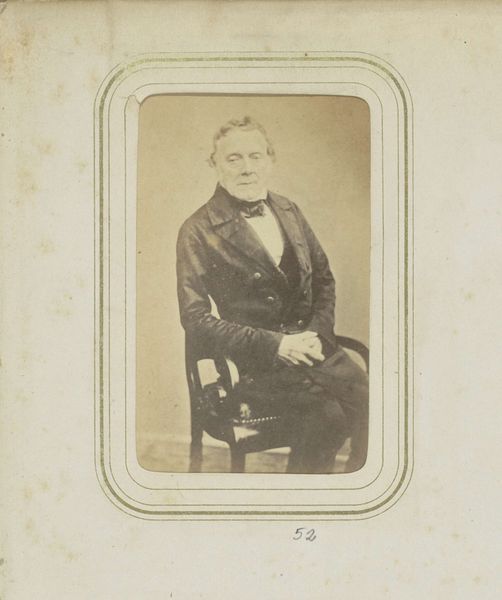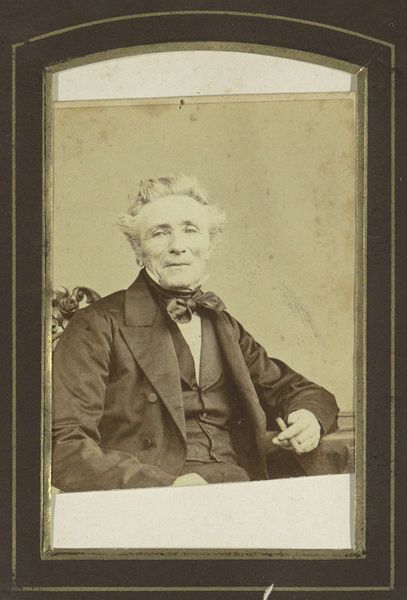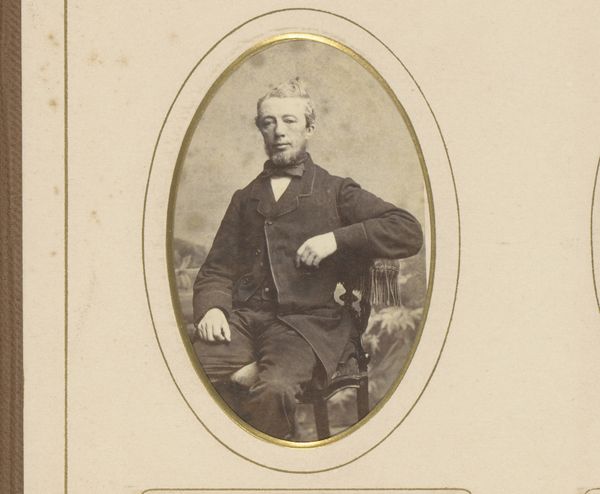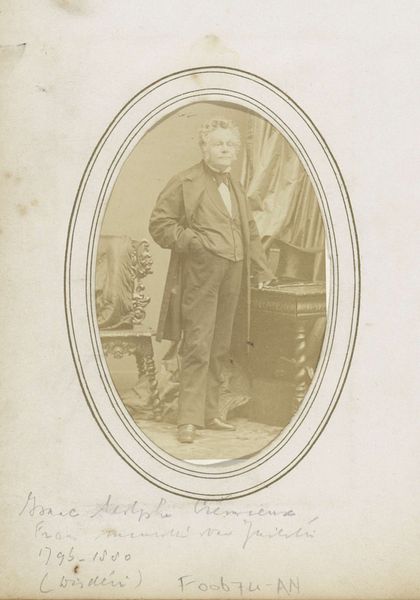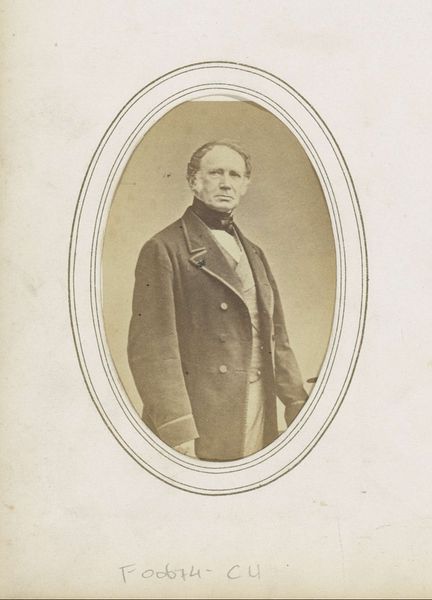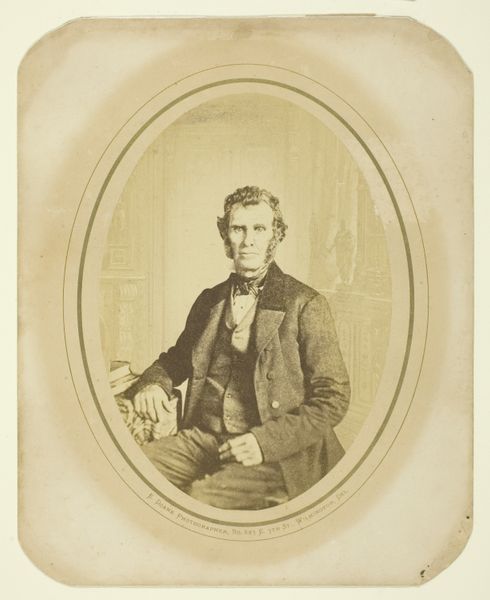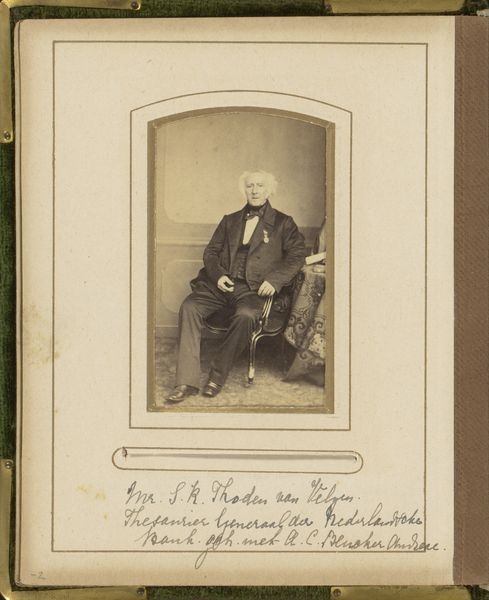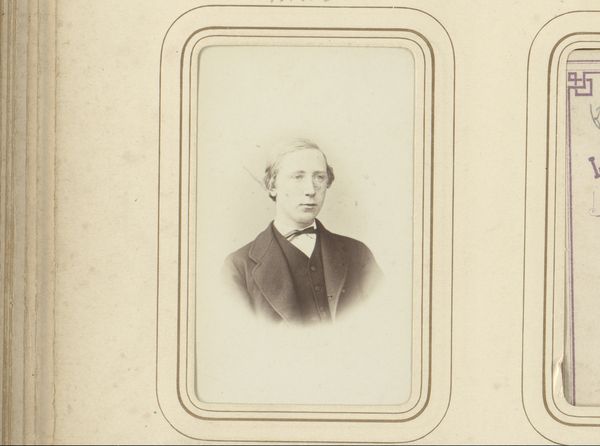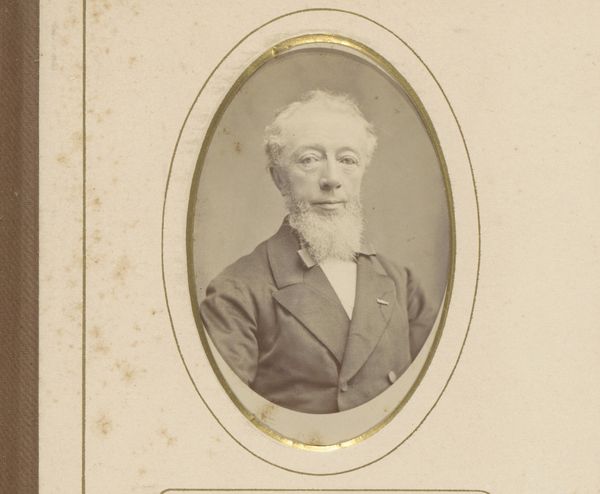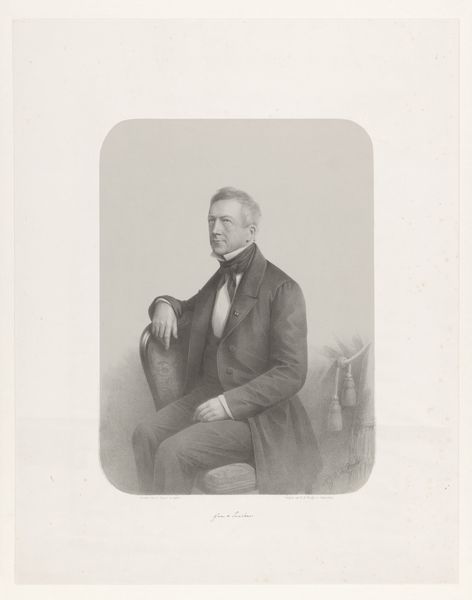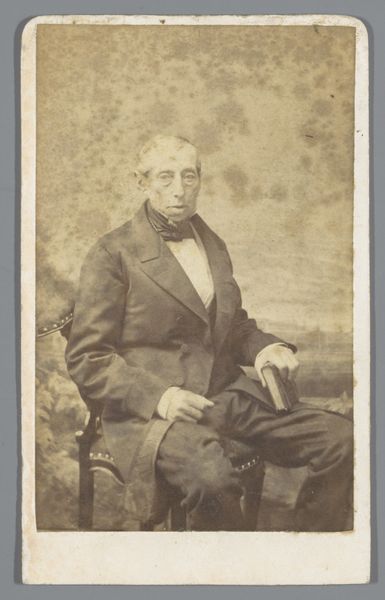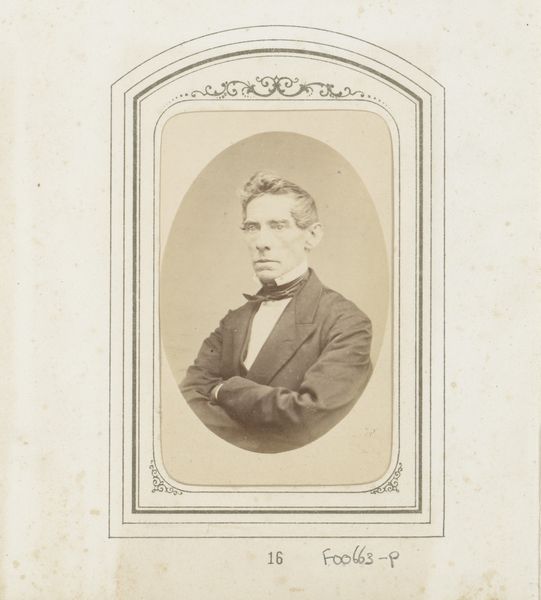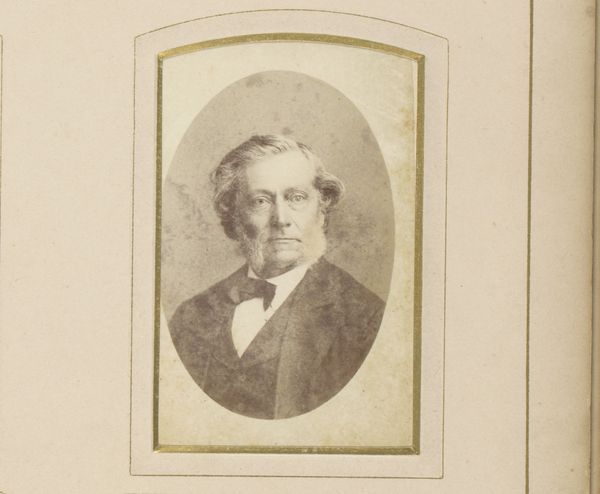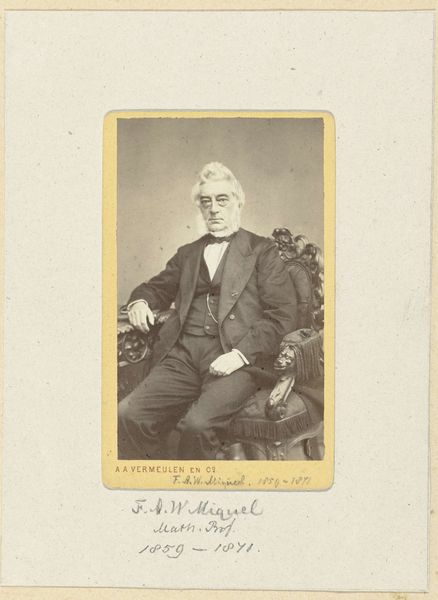
photography, gelatin-silver-print
#
portrait
#
photography
#
historical photography
#
gelatin-silver-print
#
19th century
#
genre-painting
#
history-painting
#
realism
Dimensions: height 85 mm, width 53 mm
Copyright: Rijks Museum: Open Domain
Editor: So, here we have Franz Wilhelm Deutmann’s "Portret van een zittende man," a gelatin-silver print made sometime between 1860 and 1880, housed here at the Rijksmuseum. It’s a formal portrait, almost austere in its simplicity. What strikes you about it? Curator: The austerity itself speaks volumes. Notice how the subject’s hand is positioned, gently clenched near his chest. What feeling does that convey? Editor: Almost…a subtle defiance? Or perhaps just careful composure? Curator: Precisely. Consider the time. Photography was gaining prominence, yet portraiture held onto conventions of power and status from painting. The man's attire, the somber tone – it's all meticulously constructed. Are there other symbols that draw your attention? Editor: The spectacles dangling from his vest… It’s such a small detail, but it personalizes the image. Curator: It hints at intellectualism, but also vulnerability. It suggests someone engaged with the world, yet also perhaps needing assistance to fully perceive it. These objects aren't merely aesthetic; they function as cultural shorthand. We might even ask, what does his gaze communicate? Does he seek connection, or project authority? Editor: He seems very aware of the camera… self-conscious, perhaps. I see a kind of weariness in his eyes. Curator: Indeed, photography freezes a moment, inviting endless scrutiny of the subject’s interior life, which may or may not be accessible. We are left with impressions, hints of a story both personal and deeply rooted in the social expectations of his time. Editor: It's fascinating how a seemingly simple portrait can hold so much cultural weight. I’ll never look at these 19th-century portraits the same way!
Comments
No comments
Be the first to comment and join the conversation on the ultimate creative platform.
